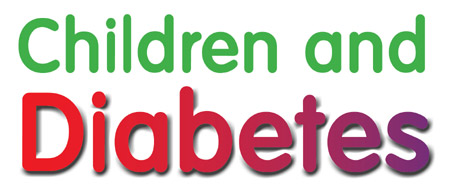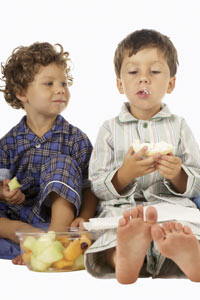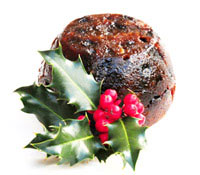Children and Diabetes - Healthy Life Essex
Home » Articles » Wellbeing » Health Conditions » What is diabetes? » Children and Diabetes

Introduction
Diabetes is a condition which develops when the person does not produce enough of the hormone insulin. Without insulin the level of glucose in the blood starts to rise and is too high. Common signs and symptoms of undiagnosed and poor controlled diabetes include;
• Passing urine more frequently,
• Feeling very thirsty
• Feeling very lethargic.
Types of Diabetes
There are two main types of diabetes, Type1 and Type 2. Type 2 Diabetes is the most common, approximately 85%, usually affecting adults of middle aged and above. It can be diagnosed in children but this is rare. Type 1 Diabetes can occur at any age, but mainly affects people below the age of 30years.
Causes of Diabetes
Type 2 Diabetes can run in families. It is strongly linked to obesity and inactivity.
The exact cause of Type 1 Diabetes, however, is not fully understood. Type 1 Diabetes is an autoimmune condition which means the body destroys its own insulin producing cells. However, it may be caused by an infection in someone who is genetically susceptible to diabetes. Type 1 Diabetes is more common in children.
Having a child diagnosed with diabetes can be a shock and lead to feelings of anger, guilt, confusion and anxiety.
Incidence of Diabetes
There are over 90,000 children aged 0-14years with diabetes. Children and young people with diabetes can have a greater risk of emotional and behavioural problems.
Continued education, support and empowerment for self management, is required to over come some of these issues. Controlling diabetes is essential to avoid potential complications in the future, such as damage to eyes, kidneys, heart and feet.
Treatment
Almost all children with diabetes need insulin injections each day to feel well and to help keep the amount of glucose in the blood at acceptable levels.
Positive communication between the health care team, parents, carers and the child is vital to help the child with diabetes lead a full and healthy lifestyle, this includes:
• Remaining positive
• Making sure insulin is being injected appropriately
• Ensuring blood glucose testing is being done appropriately
• Encouraging regular physical activity
• Ensuring a healthy diet is eaten
• Ensuring a healthy weight is maintained
 Healthy Diet
Healthy Diet
Food is an essential and enjoyable part of life. A healthy diet is one that is low in saturated (animal) fats, salt, and sugars, but contains plenty of fruit and vegetables and is high in fibre. The diet should contain a mixture of nutrients; Protein, Fat, and Carbohydrate. The body gets most of its energy source from carbohydrate foods.
Carbohydrates can be divided into two main groups; Starch and Sugar. Starchy carbohydrate from bread, potatoes, cereals, pasta, rice, and beans is better for control of blood glucose levels as they are absorbed slowly, causing blood glucose levels to rise slowly. Sugary carbohydrate from sugar, sweets, jam and fizzy drinks and juices, are absorbed quickly causing blood glucose levels to rise rapidly.
Children do not have to go without regarding sweet tasting foods and drinks. Diet and sugar free fizzy drinks and squashes are readily available. Artificial sweeteners can be used in cooking and adding to cereals. Children with diabetes can have sweet treats and chocolate, although best eaten as part of the meal or when very active. It is advisable to discuss this with a health care professional.
|
HL note: Many low sugar / no sugar food and drink products contain aspartame. Although approved by the Food Standards Agency, many people continue to voice concerns over its safety. Indeed, it is banned in children’s products in many countries. The editors of Healthy Life suggest that when possible you err on the side of caution and avoid any products containing aspartame – there are alternatives available.
|
Here are a few recipe ideas that the whole family can enjoy, including some for Christmas. (Click on the heading for the recipe)
| 7oz/200g Wholemeal Breadcrumbs 2oz/50g dark brown sugar 4oz/100g vegetable suet Pinch of salt 6oz/175g sultanas 6oz/175g raisins 4oz/100g currants |
1oz/25g blanched almonds, chopped 1 medium cooking apple, peeled, cored and grated Grated rind and juice of 1 lemon 1 size 3 egg, beaten ¼ pt/150ml Guinness Skimmed milk |
 Serves 12 per pudding, makes two. Serves 12 per pudding, makes two.Total carbohydrate 465g (38-40g/portion), Total cals 3030 (252/portion)Mix together all the dry ingredients. Add the lemon juice, egg, and Guinness. Mix well. Add a little milk if the mixture is too stiff. Place mixture in 2 x 1 pint (550ml) pudding basins, little oiled. Cover with greaseproof paper and foil. Steam for 2 ½ – 3 ½ hours or pressure cook at high pressure for 1 ½ – 2 hours. (consult manufactures instructions) Cover with fresh greaseproof and foil for storage. To serve, reheat by steaming for 2 hours. |
|
| Pastry: | 4oz/100g wholemeal flour 2oz/50g plain flour 2oz/50g low fat spread 1oz/25g white polyunsaturated vegetable fat Cold water to bind |
 |
| Filling :– | 16 teaspoons reduced sugar mincemeat Milk for glazing Powdered sweetener |
|
| Makes 16 Total carbohydrate 185g (11.5g per pie), Total cals 1260 (79 per pie)  Sieve together the two flours, rub in the low fat spread and vegetable fat. Sieve together the two flours, rub in the low fat spread and vegetable fat.Bind with just enough water to form a stiff dough, chill in the fridge for 30 minutes. Roll out the pastry on a lightly floured board Cut out 16 2inch/5cm circles to line a greased patty tin Place one teaspoon of the mincemeat into each. With the remaining pastry cut out 16 small star shapes to top each pie. Brush each pie with a little milk Bake at 200C/400F/gas 6 until pastry is cooked and golden brown, 15-20 minutes While still hot sprinkle with a little powdered sweetener. |
||
8oz/225g blackcurrants (you could also use raspberries, blackberries)
4oz/100g fromage frais
Artificial sweetener to taste
Juice of ½ of a lemon
Decoration
4 tablespoons/60ml fromage frais
4 reserved blackcurrants
Serves 4
Total carbohydrate 15g (4g per portion), Total cals 110 (27.5 per portion)
Cook the blackcurrants for about 10 minutes until tender.
Once cooled, stir in the fromage frais, lemon juice and sweetener to taste.
Sieve or process in a blender, until smooth.
Pour into 4 glass dishes and chill in the fridge before serving.
Decorate with a spoon of fromage frais and top with one of the reserved blackcurrants.
2oz/50g low fat spread, melted
6oz/175g wholemeal biscuits (Digestive), crushed.
1 sachet gelatine, dissolved in 3 tabelspoons/45mls of hot water
8oz/225g skimmed milk cheese or quark eg; Philadelphia Light
1x 5oz/150g pot of low fat natural yogurt
1 size 3 egg, separated.
5oz/150g cranberry sauce (you could use any fruit sauce made from cooking fruit with sweetener to taste)
Serves 6
Total carbohydrate 150g (25g per portion), Total cals 1500 (250 per portion)
Mix together the melted low fat spread and crushed biscuits.
Lightly oil a 7 inch (18cm) spring form tin or loose bottomed tin
Press the biscuit mix in an even layer in the base of the tin
Chill in the fridge
Mix together the skimmed milk cheese or quark, yogurt, egg yolk, and cranberry sauce in a large bowl.
Add the cooled gelatine, mix well.
Whisk the egg white until stiff, lightly fold into the mixture.
Carefully pour the mixture onto the biscuit base and chill in the fridge, until set.
Remove from the tin and place on a serving plate
Decorate if liked, with some fresh fruit berries.
Diabetes Primary Care Service
WHAT DOES THE DIABETES SERVICE DO?
The Diabetes Primary Care Service in South East Essex supports individuals in self management, helping people with diabetes to live a full, healthy and active life. The service provides individual planned care to enable each person to be experts in their own management of diabetes.
Learning more about diabetes, your individual treatment and how to manage it will put you in control, enabling you to manage your own health effectively.
The Diabetes Primary Care Service works closely with: Hospital Consultants, General Practitioners, Practice Nurses, District Nurses, Pharmacists, Dieticians and Chiropodists.
DIABETES OFFICE (South East Essex) is at:
12 Castle Road, Rayleigh, Essex, SS6 7QF
There is no drop in facility for patients at this address
The Diabetes Primary Care Service is available from Monday to Friday 9.00 am – 5.30 pm (answer phone outside hours)
Adult Telephone: 01268 464590
Children Telephone: 01268 464549
Fax: 01268 464584
E-mail address: diabetes.hadleigh@see-pct.nhs.uk
